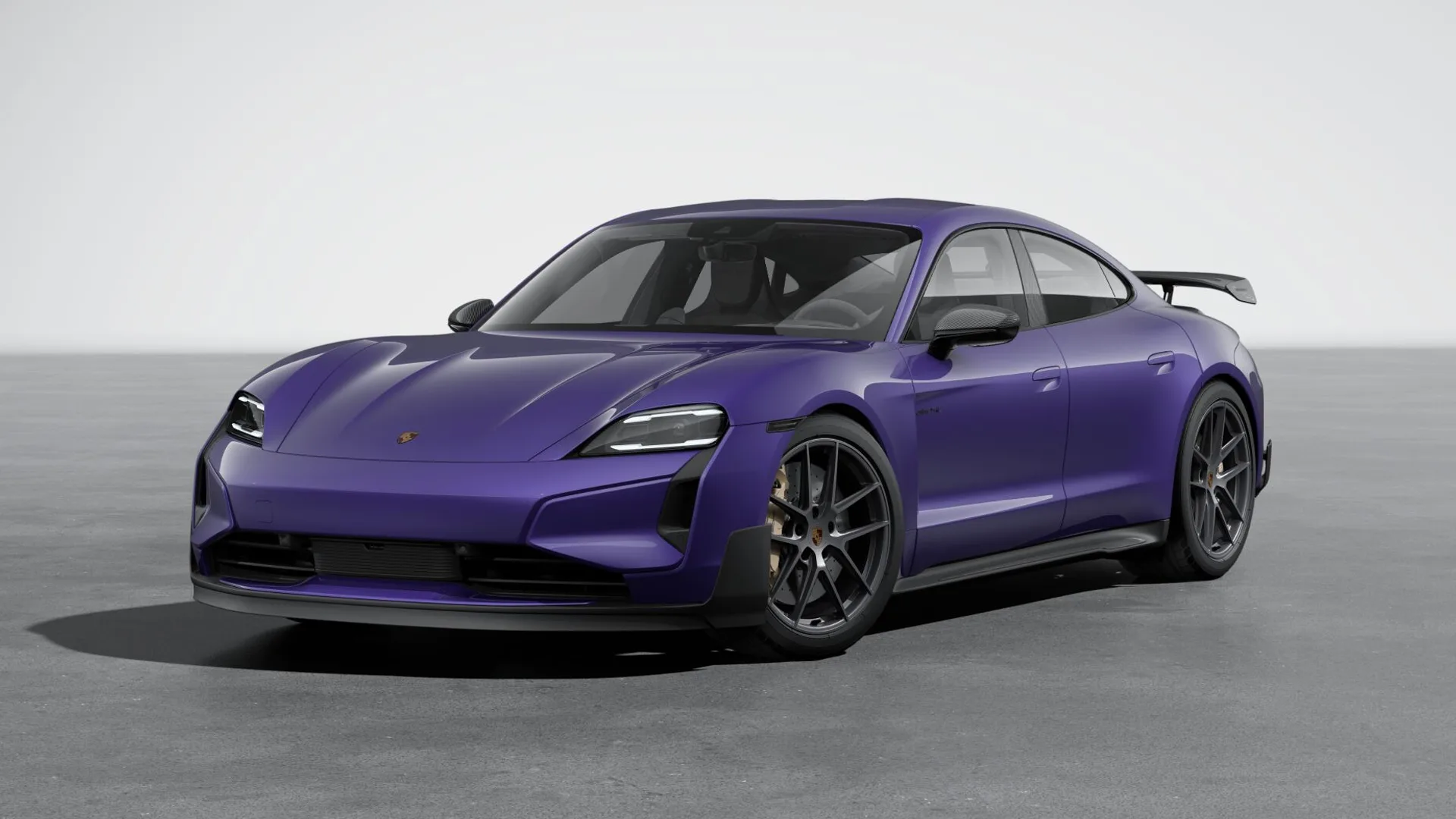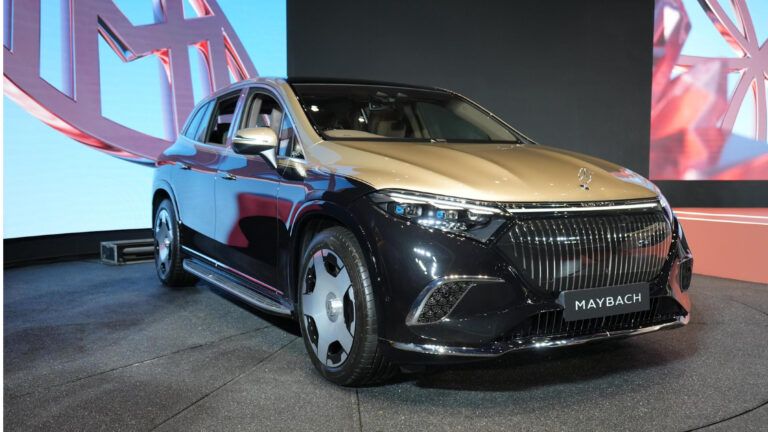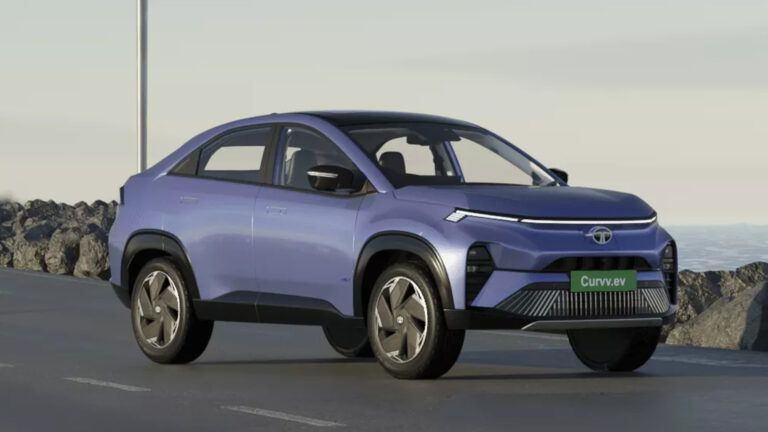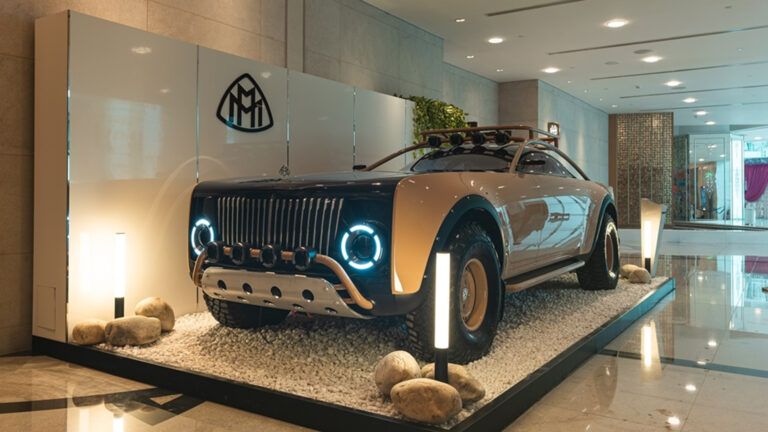Porsche, on Monday, revealed the Taycan Turbo GT, its latest flagship electric sports car. The German car maker labelled it as its most powerful model yet.
The Taycan Turbo GT has also set record lap times at two renowned racetracks – Laguna Seca and the Nürburgring.
Enthusiasts will not have to wait for long as the electric car will be available this summer with a hefty price tag of about $230,000.
Moreover, prospective buyers can place preorders for two versions of the Taycan Turbo GT: the standard four-seat variant or the two-seater Weissach Package edition.
How Powerful is the Taycan Turbo GT?
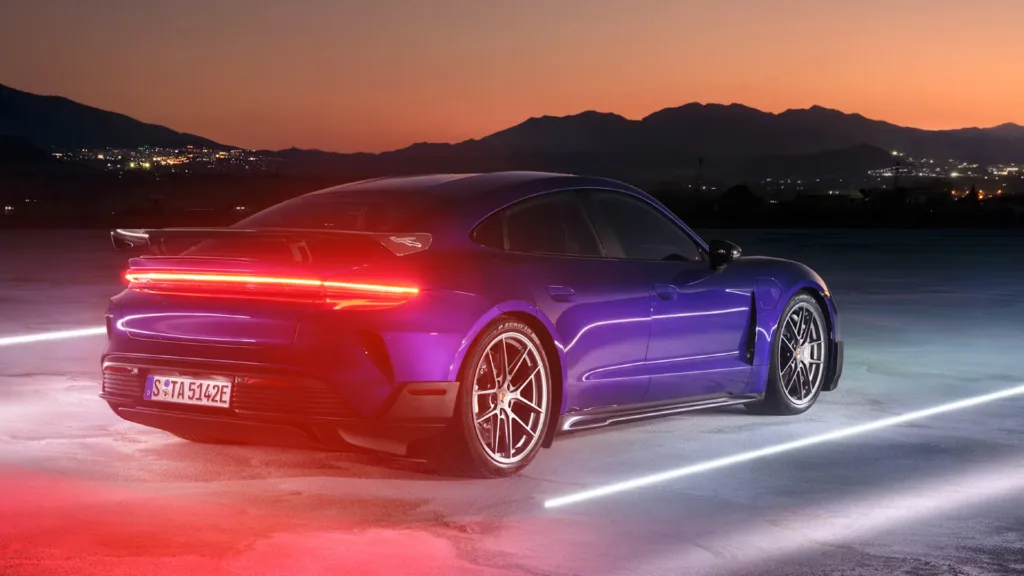
According to Porsche, the Taycan Turbo GT and the Taycan Turbo GT with Weissach package will push Taycan performance to a new level.
Both cars, featuring a more powerful pulse inverter, deliver a maximum power output of 778 bhp (580 kW).
However, by engaging launch control, the standard Taycan Turbo GT can boost up to 1,020 bhp (760 kW) on over-boost for two seconds.
With a top speed of 290 kmph, the standard Taycan Turbo GT can accelerate from zero to 100 kmph in 2.3 seconds and reach 0-200 kmph in just 6.6 seconds.
Moreover, both the EV variants deliver a maximum torque of up to 1,340 Newton meters.
On the other hand, the Turbo GT with Weissach package, the hardcore version, is a two-seat track car.
While the car has 778 bhp, with a “launch control” button, the Weissach variant will generate 1,093 horsepower on over-boost.
With a top speed of 305 kmph, the car will go from 0-100 kmph in 2.2 seconds and 0-200 kmph in just 6.4 seconds.
Additionally, the new Porsche features an “Attack mode” that can increase power output to 937 horsepower, similar to the 99X Porsche racer in the Formula E championship.
It’s worth noting that the “Attack mode” will only remain active for 10 seconds at a time.
That’s because maintaining these power levels over extended periods can be challenging due to the essential cooling requirements for both motors and batteries.
According to WLTP measurements, the Taycan Turbo GT models offer a range of up to 555 km.
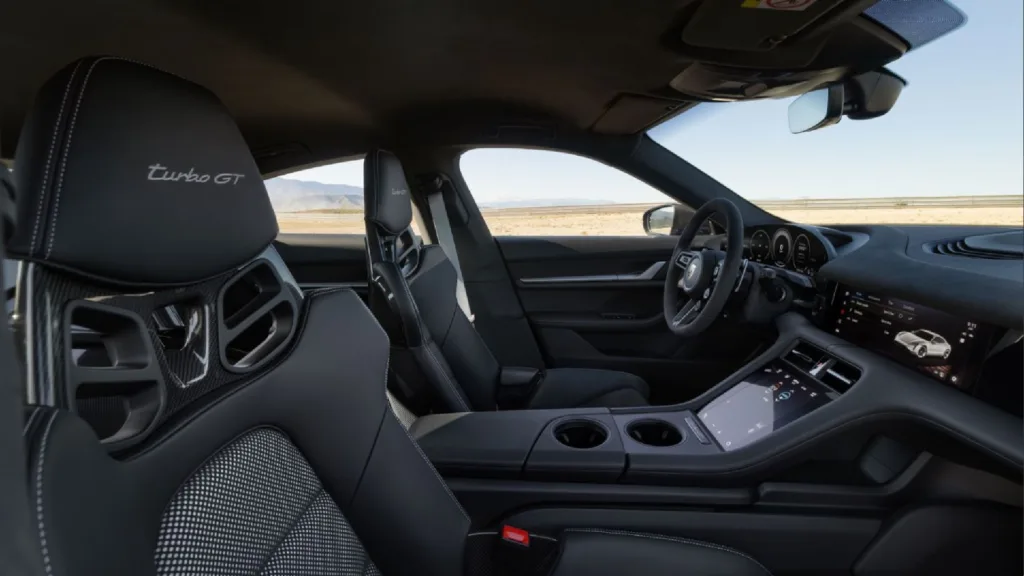
Lightweight Construction of the Taycan Turbo GT
Porsche implemented intelligent lightweight construction strategies that will slash the weight of the Taycan Turbo GT by up to 75 kg compared to the Taycan Turbo S.
Moreover, several carbon parts help to achieve this weight reduction.
The use of carbon fiber extends to the trims along the B-pillars, the upper shells of the door mirrors, and the side skirt inlays.
CFRP full bucket seats, a lightweight luggage compartment, and the absence of an electric soft-closing function for the tailgate all contribute to weight savings.
Notably, the lightweight ceramic brakes come standard on the Taycan Turbo GT.
Design changes to the brake disc chamber and the brake calliper housing also contribute to a weight reduction of over 2kg.
This leads to improvements in driving dynamics and performance by reducing unsprung and rotating masses, resulting in better performance.
The Lap Record of Taycan Turbo GT
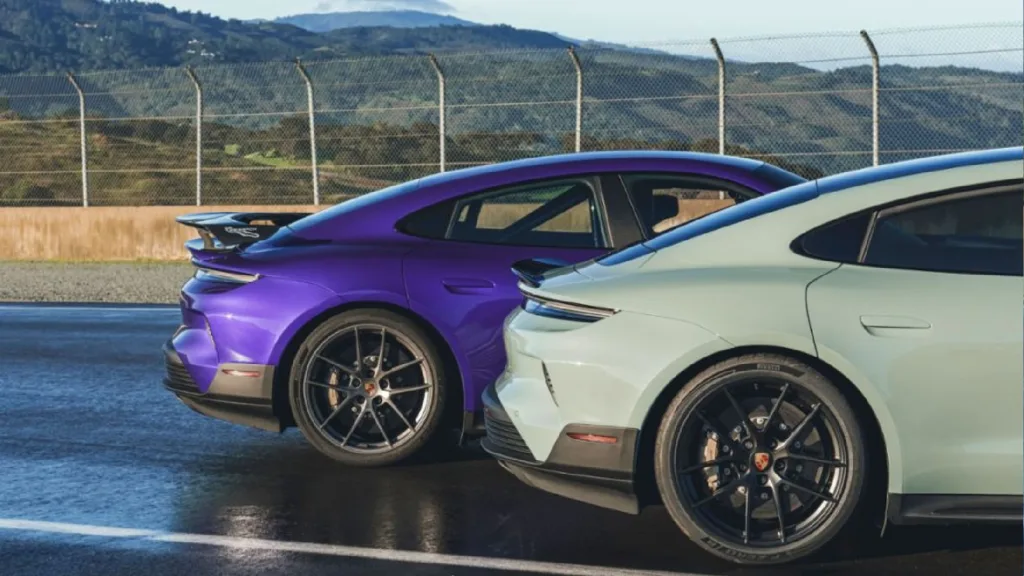
The Taycan Turbo GT with Weissach package was crowned as the fastest electric series-production car after it set the record lap time of 1:27.87min by Lars Kern at the Weathertech Raceway Laguna Seca.
Remarkably, a pre-production version of the standard model also conquered Germany’s legendary Nurburgring Nordschleife track with a lap time of a lap time of 7:07.55 min.
However, it fell short of the current production EV lap record set by the Rimac Nevera by just under 7 seconds, which stands at 7:00.928.
But the Porsche EV surpassed the Taycan Turbo S by 26 seconds and outpaced the Tesla Model S Plaid by 18 seconds.
It is important to note that at the Nürburgring, cars must possess not only high speed and quick acceleration but also exceptional cornering abilities, which the Taycan Turbo GT certainly does.
Porsche Upcoming Electric Cars
It is important to note that both the EVs have “Turbo” in their titles. However, neither of them features turbochargers, as EVs do not require turbochargers to compress air for internal combustion engines.
Moreover, Porsche stated that its upcoming next-gen Boxster and Cayman 2-door sports cars will be electric.
According to Porsche executives, its iconic 911 sports car will be the last Porsche model to go all electric.

